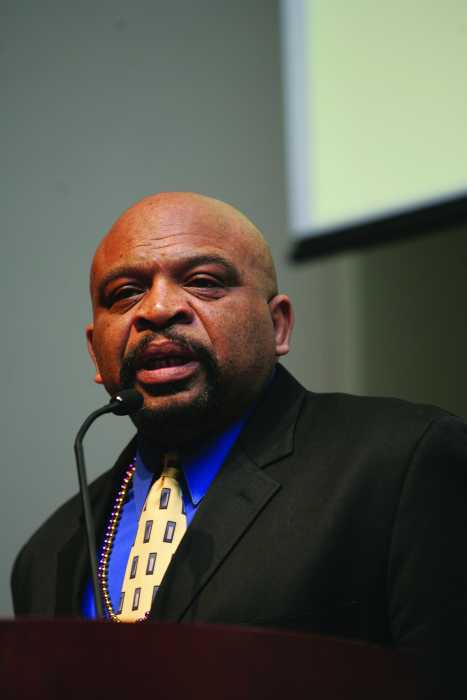George Gresham is the president of 1199SEIU, the nation’s largest health care union. Under his leadership, 1199SEIU has secured industry-leading job and benefit standards for health care workers and positioned the Union as a major force for advancing progressive causes. He began his career in the housekeeping department at Columbia Presbyterian, and over four decades has held every elected position in the Union’s constitution, from member delegate to president, a title which he has held since 2007.
Robert Grossman
CEO, NYU Langone Health | Dean, NYU Grossman School of Medicine
Dr. Robert Grossman serves as CEO of NYU Langone Health and dean of NYU Grossman School of Medicine, positions he has held since 2007. In these roles, Dr. Grossman leads more than 45,000 employees, students, and non compensated faculty across six inpatient locations and over 320 sites throughout the New York City region and in Florida. Dr. Grossman received his B.S. in biology from Tulane University and his M.D. from the University of Pennsylvania.
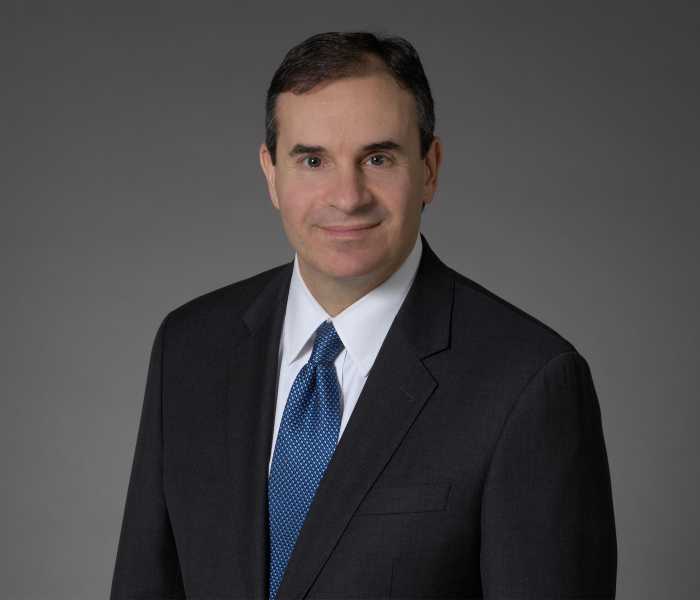
Steven Guido
Chief Financial Officer, Episcopal Health Services Inc.

Steven Guido is the chief financial officer at Episcopal Health Services Inc. (EHS). Immediately prior to joining EHS, he spent seven years as senior director with Alvarez & Marsal Healthcare Industry Group. He has 25+ years of experience in health care in various management positions. He has led successful financial turnaround efforts for multiple health care systems. Mr. Guido earned a bachelor’s in business administration from SUNY Utica/Rome and an MBA from Union College.
What influenced you to pursue a career in the health care field?
I have been fortunate to spend my career in health care finance as it has allowed me to pursue my passion for business and finance, while contributing to a critically important public service. I view my job as helping to secure and manage resources in support of the amazing, life-changing work performed by team members at EHS.
What is the biggest challenge currently facing New York’s health care system?
I believe that the biggest challenge facing New York’s health care system is finding the optimal financing structure which can ensure that adequate funding is sustained, to ensure that high-quality health care services are accessible to all New Yorkers. Accessible, quality health care is expensive but also essential, and in aggregate, I feel that there are currently sufficient financial resources directed toward health care spending, if allocated properly.
How do you describe your position to people outside of the health care industry?
When people ask what I do, I usually say that alongside our finance team, we care for the financial health of EHS, so our team members can improve and protect the health care needs of our community.
What can policymakers do to ensure equitable access to quality health care?
Policymakers should continue to support affordable access to quality health care by ensuring that communities that are heavily reliant on government insurance (Medicare and Medicaid) have the same options for high-quality inpatient, outpatient and preventative services as more commercially insured communities do. This includes ensuring that safety net providers like EHS have the financial resources needed to continue to provide comprehensive high-quality services in modern well-appointed facilities.
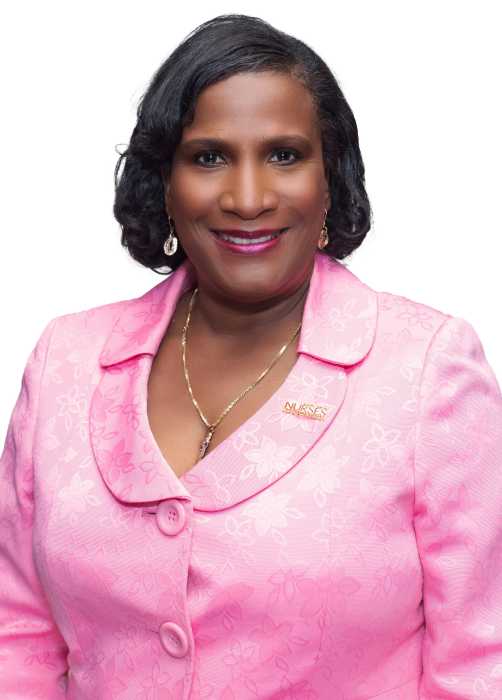
Nancy Hagans
President, New York State Nurses Association

Nancy Hagans, R.N., BSN, CCRN, serves as president of the New York State Nurses Association (NYSNA) and on the Council of Presidents of National Nurses United (NNU). Nancy has been an advocate for equity and justice throughout her career as a nurse and union leader. Since her election as NYSNA president, Nancy and NYSNA have won groundbreaking staffing legislation in New York and achieved safe staffing and community victories for 16,000 NYC private sector nurses.
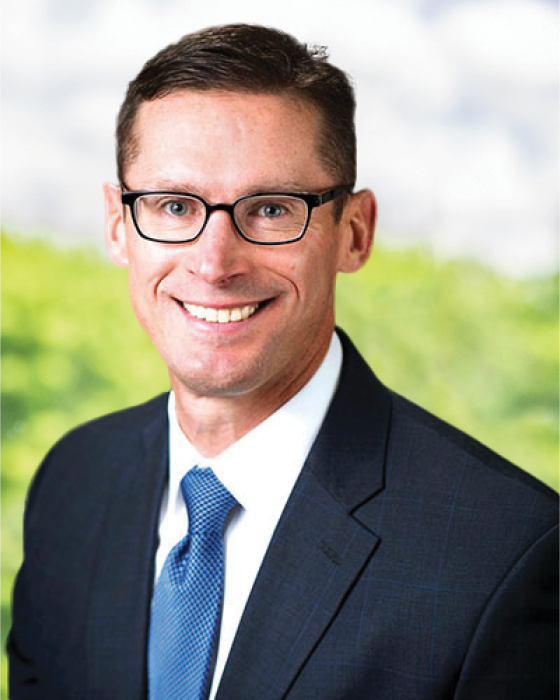
Stephen Hanse
President and CEO, New York State Health Facilities Association|New York State Center for Assisted Living

Stephen B. Hanse, Esq. serves as president and CEO of the New York State Health Facilities Association/New York State Center for Assisted Living (NYSHFA|NYSCAL). NYSHFA|NYSCAL is a statewide association of providers of long-term care services, caring for individuals of all ages in proprietary, not-for-profit, and government-sponsored skilled nursing, postacute, rehab, adult care and assisted living communities across New York. Mr. Hanse previously served as vice president and counsel for NYSHFA|NYSCAL.
What influenced you to pursue a career in the health care field?
I have been fortunate to represent health care providers for the majority of my career. Giving my all in advocating for and addressing the needs and concerns of New York’s skilled nursing and assisted living providers and the residents we serve is extremely fulfilling. Each day at NYSHFA|NYSCAL we are advancing the causes of the women and men on the front lines of long-term care and the residents we serve.
What is the biggest challenge currently facing New York’s health care system?
There are two major challenges facing skilled nursing and assisted living providers throughout New York – the long-term care staffing shortage crisis and the State’s history of underfunding Medicaid. Nursing home providers are facing a labor force that is still over 10% below pre-COVID employment levels. New York’s average per-day gap between nursing home provider costs of care and the State Medicaid reimbursement rate is $91. New York must address these challenges in 2024.
How do you describe your position to people outside of the health care industry?
My position is one in which I am blessed to lead an organization that is laser-focused on providing critical advocacy and education initiatives to advance and address the interests and concerns of New York’s skilled nursing and assisted living providers and the residents we serve.
What can policymakers do to ensure equitable access to quality health care?
Equitable access to essential long-term care in New York can only be achieved through the State’s commitment to fully fund the cost of care for Medicaid residents in nursing homes and assisted living facilities. Fully funding the cost of care will ensure access to care by enabling providers to compete in the labor market in the recruitment and retention of long-term care employees.
Junior Harewood
CEO, UnitedHealthcare of New York
Junior Harewood is the CEO of UnitedHealthcare of New York for employer and individual health plans. In this role, Junior is charged with leading the commercial health plans in New York to successfully deliver affordable, quality health care programs to employers and plan sponsors, which improve the overall health and well-being of its members. Junior is a native New Yorker and 25 year employee of UnitedHealthcare.
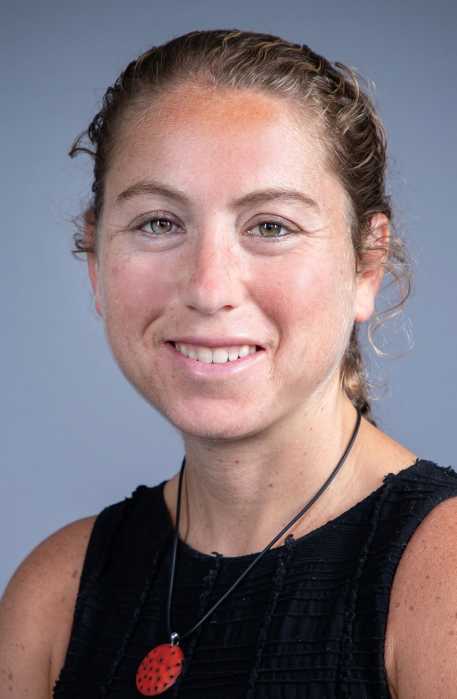
Brett Harris
President, New York State Public Health Association

Brett Harris, DrPH, is the president of the New York State Public Health Association (NYSPHA), a clinical associate professor at the University at Albany School of Public Health, and a senior research scientist in the Public Health Department at NORC at the University of Chicago. Dr. Harris specializes in substance use and suicide prevention and leads several CDC, SAMHSA, and privately funded training, technical assistance, and evaluation projects to address these concerns in New York.
What influenced you to pursue a career in the health care field?
My father died when I was twelve years old. Witnessing his decline and the many missed opportunities for prevention influenced me to pursue a career in health care. Originally, I had wanted to go to medical school but quickly realized public health was the perfect fit for me. By focusing on prevention, I could help promote health and well-being at the population level and prevent countless deaths and their accompanying grief.
What is the biggest challenge currently facing New York’s health care system?
The focus of New York’s health care system is too far downstream. By waiting until people get sick, everything costs more and outcomes are less likely to be positive. It is critical that the state focus more dollars on prevention and public health, funding screening and brief intervention in primary care as well as community-based prevention programs. Integration of mental health services into primary care will also help bring about positive outcomes.
How do you describe your position to people outside of the health care industry?
I lead the state’s association of public health professionals, 700+ members who are dedicated to the communities they serve. We address the most pressing public health concerns facing the state – including mental health and suicide risk, climate change, tobacco, substance use, obesity, poor nutrition, lead poisoning, and gun violence – through policy, advocacy, and public health practice. We also provide education, networking, and a sense of community for the field, from students to retirees.
What can policymakers do to ensure equitable access to quality health care?
To ensure equitable access, policymakers should advocate for ways to reach populations that are historically hesitant to seek traditional health care services. Outreach by a trusted member of the community is a great way to bring services to these populations. I’m proud to be a part of a SAMHSA grant that is using this approach to deliver substance use screening and early intervention to rural, tribal, LGBTQIA2S+, and immigrant communities in New York.
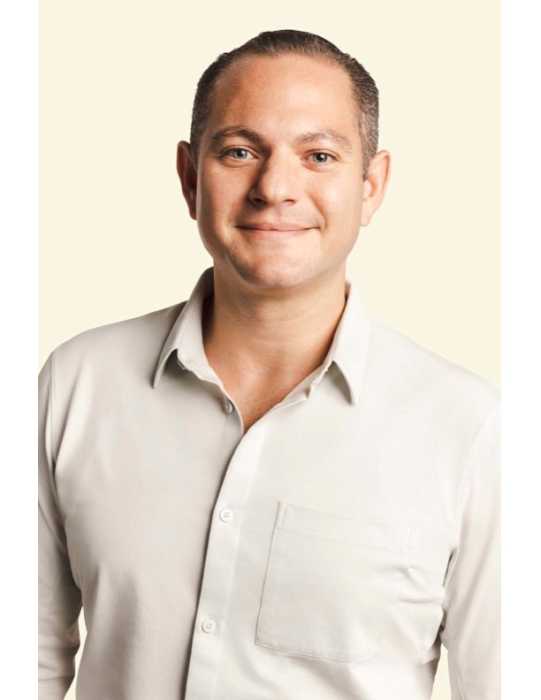
Jacob Hascalovici
Co-Founder and Chief Medical Officer, Relief Medical Group PA

Dr. Jacob is a physician-scientist and entrepreneur specializing in neurology and pain management. He is a clinical associate professor of neurology, physical medicine and rehabilitation and anesthesiology at Albert Einstein College of Medicine, Bronx, NY and co-founder and chief medical officer of Relief Medical Group (Blisshealth.care), a telehealth-focused clinic specializing in non-opioid based therapies for chronic pain. The clinic makes it easy to access high-quality pain-focused care from the comfort of a patient’s home.
What influenced you to pursue a career in the health care field?
My deep-rooted passion for making a positive impact on people’s lives drew me to health care. What particularly excites me is the potential of digital health to revolutionize the industry, making health care more accessible and efficient. I believe that by harnessing technology and data, we can improve patient outcomes and enhance the overall health care experience for individuals and communities. This is in perfect alignment with the high standard of care we aim to provide at Blisshealth.care.
What is the biggest challenge currently facing New York’s health care system?
The most pressing challenge facing the health care system is the overwhelming bureaucracy and inefficiency tied to dealing with commercial, state, and federal payor and insurance companies. Tasks such as joining insurance panels, credentialing, billing and coding, navigating prior authorizations, and contesting claims denials are excessively time-consuming, laden with outdated processes like paper applications and faxing, and excessively burdensome. These administrative hurdles detract from health care’s fundamental mission – to provide quality care to individuals.
How do you describe your position to people outside of the health care industry?
When explaining my role to those outside the health care sector, I tell them that I collaborate with individuals to enhance their well-being and quality of life, specifically regarding chronic pain management. My approach encompasses a holistic perspective, considering not just the physical aspects but also the mental and social dimensions of health. I aim to empower people to rediscover their best selves and help them find ways to live better and feel better.
What can policymakers do to ensure equitable access to quality health care?
Policymakers play a crucial role in fostering equitable access to quality health care. One key step is to eliminate state-specific medical licensure, establishing a national licensing system that enables health care professionals to practice across state lines. Additionally, implementing a digital and streamlined insurance credentialing process can reduce administrative burdens and improve accessibility to care. These reforms can promote health care access regardless of geographic boundaries and enhance the efficiency of our health care system.
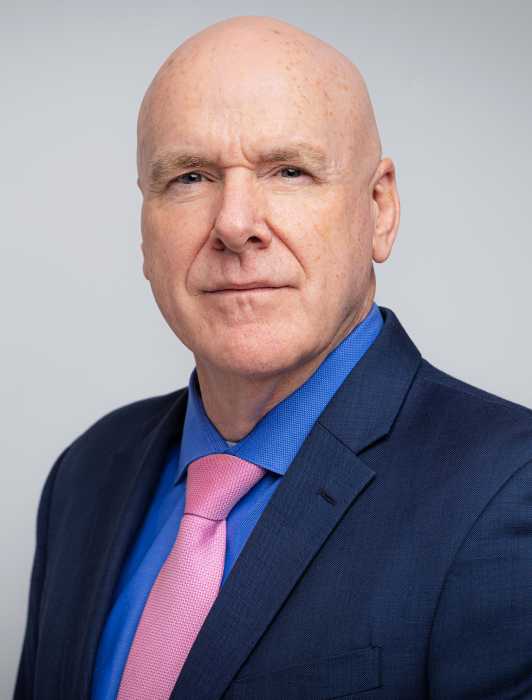
William Hicks
CEO, NYC Health + Hospitals | Bellevue

William Hicks leads NYC Health + Hospitals | Bellevue, the oldest public hospital in America. For 287 years, Bellevue has been on the front lines of public health challenges such as smallpox, AIDS, Ebola, and COVID-19. Hicks has overseen Bellevue’s national recognitions for adult and pediatric trauma, stroke care, cardiology, diabetes, rehabilitation, psychiatry and special pathogens. Bellevue provided direct care for patients with COVID-19, and operated a vaccine center, and testing site that conducted more than 230,000 tests.
What influenced you to pursue a career in the health care field?
I was brought up to respect the physicians, dentists, nurses and workers who kept us healthy. Many of my family members worked as ironworkers and firemen, which, back then, could be a dangerous way to make a living. But when things went wrong, it was the health care workers who made a difference. My family guided me to pursue a career in health care because they saw the opportunity and decency in helping others.
What is the biggest challenge currently facing New York’s health care system?
There have been unprecedented global health challenges in recent years, and certainly, New York has not been isolated from it all. As we have tried to manage spiraling costs, and improve the quality of care and general health of our population, New York’s unsettled health care job market has added another dimension to the challenge. We see health care worker fatigue, with talented individuals exiting the industry and a mobile workforce that challenges most retention efforts.
How do you describe your position to people outside of the health care industry?
In health care, there is complexity to everything that we do and collective expertise is what overcomes complexity. I see my position as one that is responsible for assembling that collective expertise, directing and supporting them in ways that meet the task and reach the aims of our mission. A primary focus of my position is to develop and nourish a culture which supports collective expertise so it remains responsive and sustainable.
What can policymakers do to ensure equitable access to quality health care?
Policymakers can help call out barriers to care using reliable sources of data. They can help lobby for funding for programs that address those barriers which in many cases would be community or population-targeted programs. We can use health outcomes as good markers to demonstrate the unfairness that specific populations face and can illuminate the social determinants that lead to inequities.
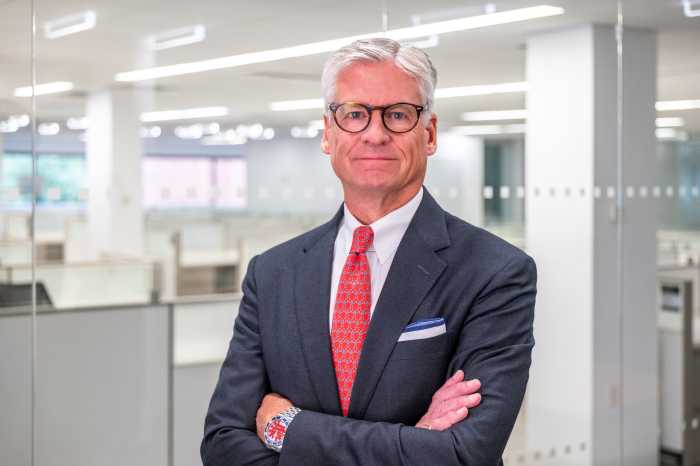
Christopher Hillyer
President and CEO, New York Blood Center Enterprises

Christopher D. Hillyer, M.D. is president and CEO of New York Blood Center Enterprises (NYBCe), general partner at NYBC Ventures, a distinguished investigator at the Lindsley F. Kimball Research Institute, and a professor within the Department of Medicine at Weill Cornell College of Medicine. An internationally recognized expert in hematology, transfusion and transplantation, and cellular and related therapies, Dr. Hillyer brings a unique combination of vision, executional experience, and proven success as a business executive, scientist, board member, and global leader.
What is the biggest challenge currently facing New York’s health care system?
Our biggest challenge is rebuilding the blood supply to pre-pandemic levels and increasing overall collections to meet growing demand. Since 2020, there have been fewer blood drives with schools, offices, and other community organizations. The lack of school blood drives has caused a prolonged 50% decrease in youth donors, which are critical to a healthy blood supply. We’re currently asking the younger generation to step up and begin a life-long commitment to donating blood.


